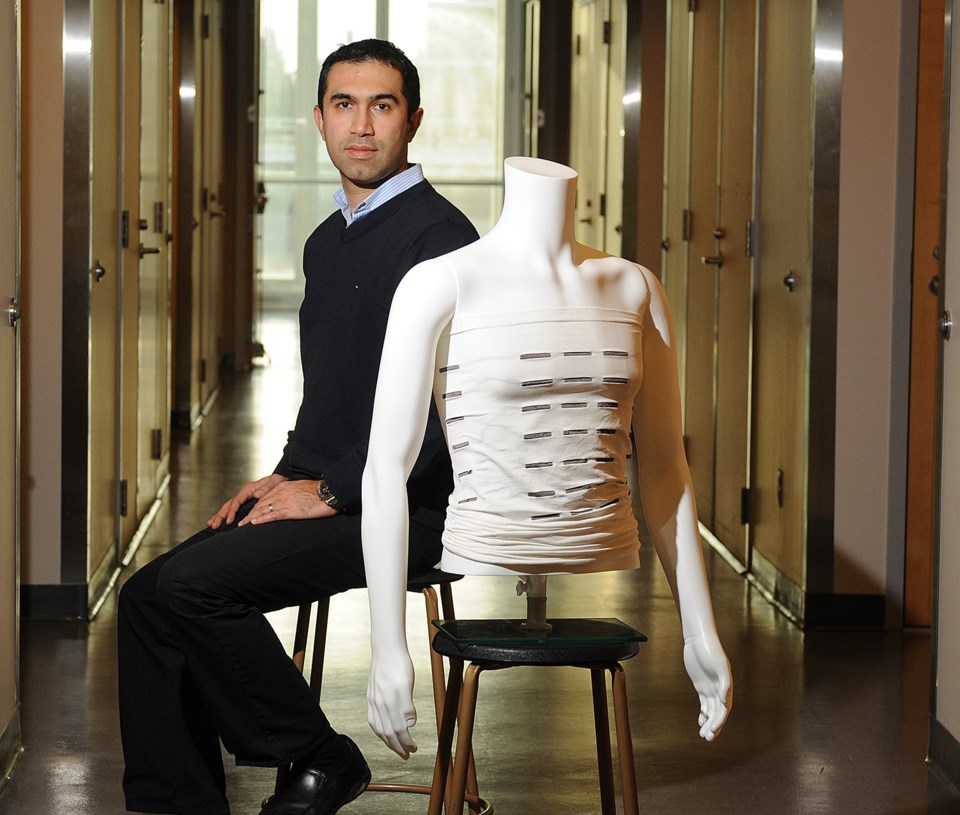Peyman Servatiās passion for scientific projects including tents that store solar power and shirts that monitor heart rates paid off last week.
Federal Minister of State for Science and Technology Greg Rickford featured the work of the associate professor of electrical and computer engineering Jan. 9 when he announced $43 million in research grants for 23 universities across the country at the University of B.C. The money was granted through the National Sciences and Engineering Research Council of Canada. Ā
Servatiās solar cell and bio-sensing textile projects received $1.03 million.
āThis is somewhat of a passion that I have for this kind of technology. I have been working on flexible electronics for a long time,ā he said.
āThis is a personal interest and [I have] passion about it, basically making real contributions to the life of people in both of these projects.ā
Servati works with Frank Ko of materials engineering whoās an expert in nanofibres.
Heās working with Ko and others to develop fabric that could harvest and store solar energy to be used as electricity. A tent made of such material could be used in remote areas, the developing world, by the military and campers.
Servatiās team is working with a textile company in Ontario to develop solar window coverings or curtains to produce green energy.
Unlike solar panels, which are add-ons to homes, Servati, his team and international collaborators want to integrate pliable solar cells into regular building materials.
āMaybe in the future we can integrate in clothing so it enables people to wear stuff that can charge mobile [devices], for example our health monitoring sensors,ā he said.
Servati is working with colleagues to create clothing or flexible, fine material that could be attached to oneās skin to monitor vital signs.
This furthers Koās earlier work of creating a āskinā for aircraft that could sense the environment and detect small cracks on a planeās surface.
Servatiās researchers are working with ReFleX Wireless, a B.C.-based company created by three UBC undergraduates that has gained attention for it wireless health monitoring systems.
Researchers are also working with medical experts that include Kendall Ho, an emergency room doctor at UBC Hospital.
āWhat they see is a great potential for wearable electronics that can monitor the health and vital signs of patients. Suppose that somebody goes to an emergency room and they had a cardiac issue, if they wear a vest or very comfortable shirt that monitors their signs, if something, even a slight thing happens, it alerts the doctors,ā Servati said.
Researchers are also collaborating with Martin McKeown of the Pacific Parkinsonās Research Centre at UBC. Parkinsonās is a degenerative disease of the central nervous system typically marked by tremors.
āThe magnitude of tremors are not really monitored that accurately,ā Servati said. āAnd that is important for prescription of medicine.ā
Servati and Ko have already created shirts with integrated sensors.
Servati expects early solar products related to their research could hit the market in five to 10 years with supple sensing products arriving in five years.
Ten UBC projects received $9 million in research funds from NSERC last week. Servati believes UBC received the most grants of any university in Canada.



